Seven things to know about Malaysia election
Sign up now: Get insights on Asia's fast-moving developments
KUALA LUMPUR - Malaysia will go to the polls on Saturday, with a record number of contenders the outcome
Here are seven things to know about Malaysia’s 15th General Election.
1. Race to be PM
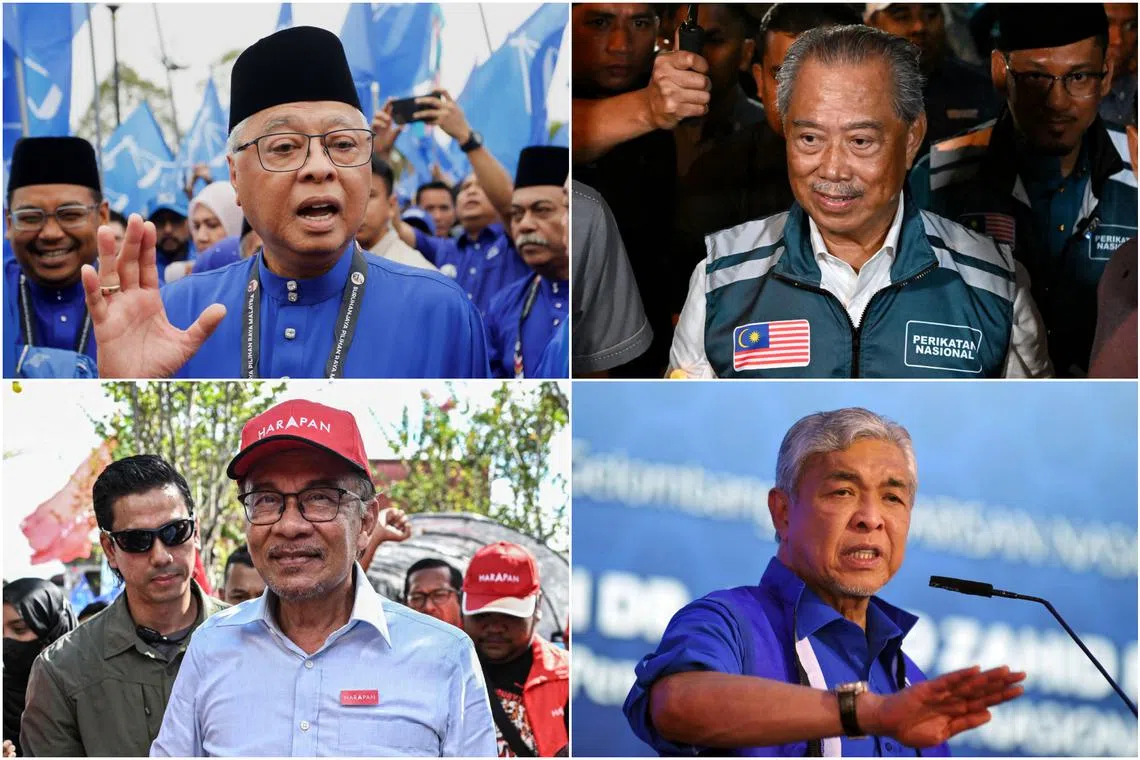
(Clockwise from top left) Malaysian PM Ismail Sabri Yaakob, former premier Muhyiddin Yassin, Barisan Nasional chief Zahid Hamidi and Pakatan Harapan leader Anwar Ibrahim.
PHOTOS: REUTERS, KUA CHEE SIONG, BERNAMA, AFP
On paper, there are three candidates in the running
BN has repeatedly touted caretaker PM Ismail Sabri Yaakob, Muhyiddin Yassin
PH’s Anwar Ibrahim
2. Battles to watch
Tiny Perlis, with only three parliamentary wards, is shaping up to be one of the states to watch as BN, which has ruled the place since Independence, risked losing the northern state
Another tough fight is in Perak
Zahid will be defending his seat in the Bagan Datuk onslaught from PH’s Shamsul Iskandar Md Akin
For Anwar, his star presence means he continues to attract huge crowds during his hustings, but he has staked his political career on an uphill battle Ahmad Faizal Azumu
3. Who are the candidates
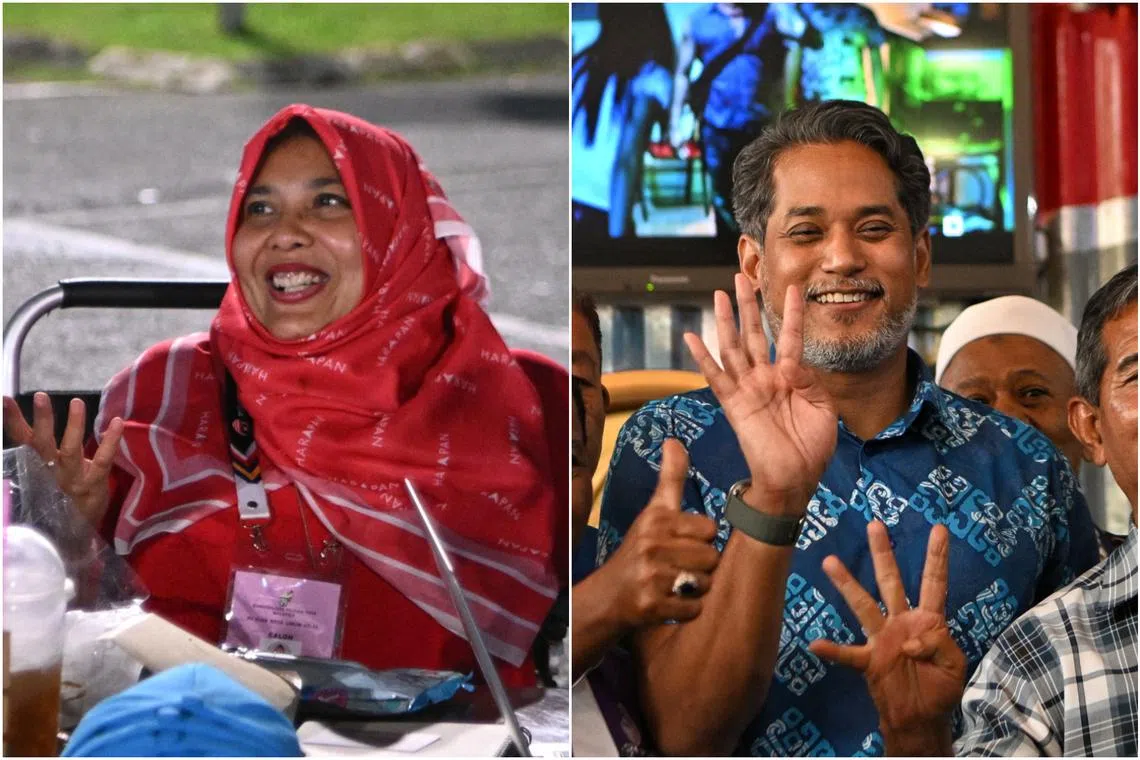
Parti Keadilan Rakyat’s Noraishah Mydin Abdul Aziz (left) and Caretaker Health Minister Khairy Jamaluddin.
ST PHOTOS: ARIFFIN JAMAR
A record 108 independent candidates despite the odds
One candidate that stood out has been Parti Keadilan Rakyat’s Noraishah Mydin Abdul Aziz
Another candidate to watch is BN’s Khairy Jamaluddin
4. Youth power
More than four million youth, representing one-fifth of the electorate
Studies have shown that this cohort of Internet-savvy voters have other key concerns,
In a bid to woo these voters, many election candidates have jumped on the TikTok bandwagon
5. Rain, rain go away
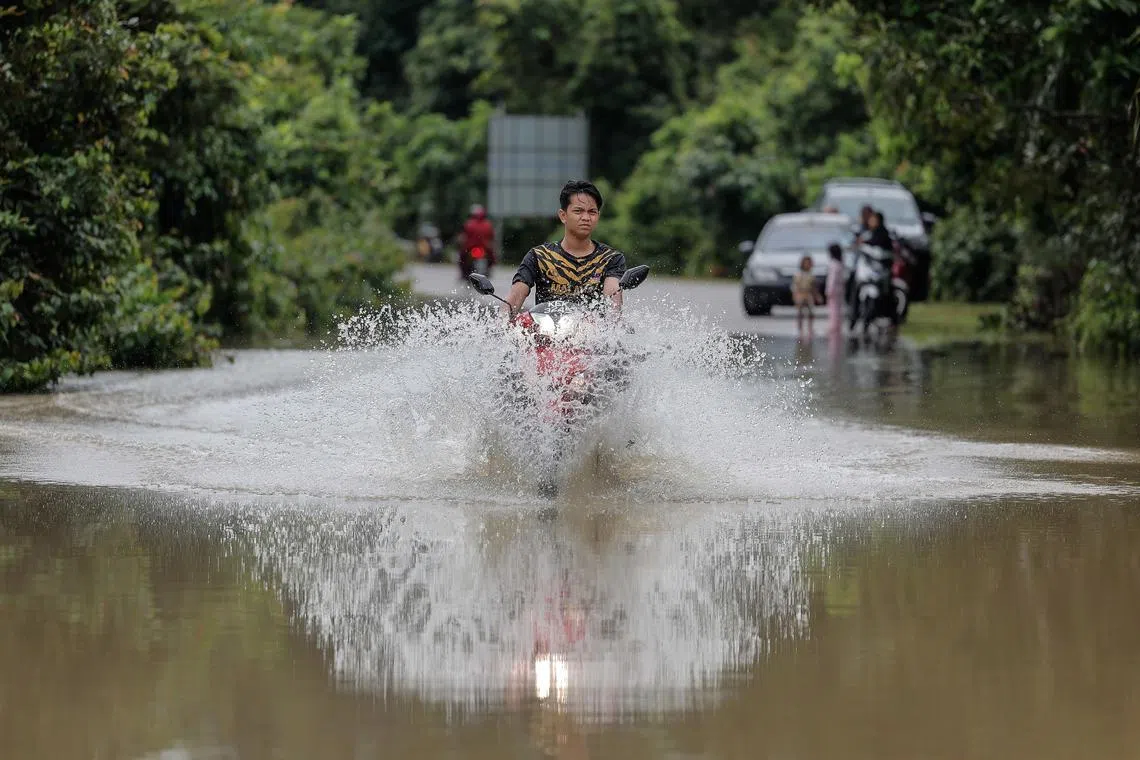
Heavy rains have been falling in several Malaysian states in the last few days, with flooding forcing people into relief shelters in some states.
PHOTO: BERNAMA
Rainy weather in parts of Malaysia has not just cast a dampener on hustings, but has also renewed public anger
Thousands of people had to be evacuated to temporary relief centres suspend their campaigning
The meteorological department has warned that there will be rain and thunderstorms in most states
6. Voter turnout
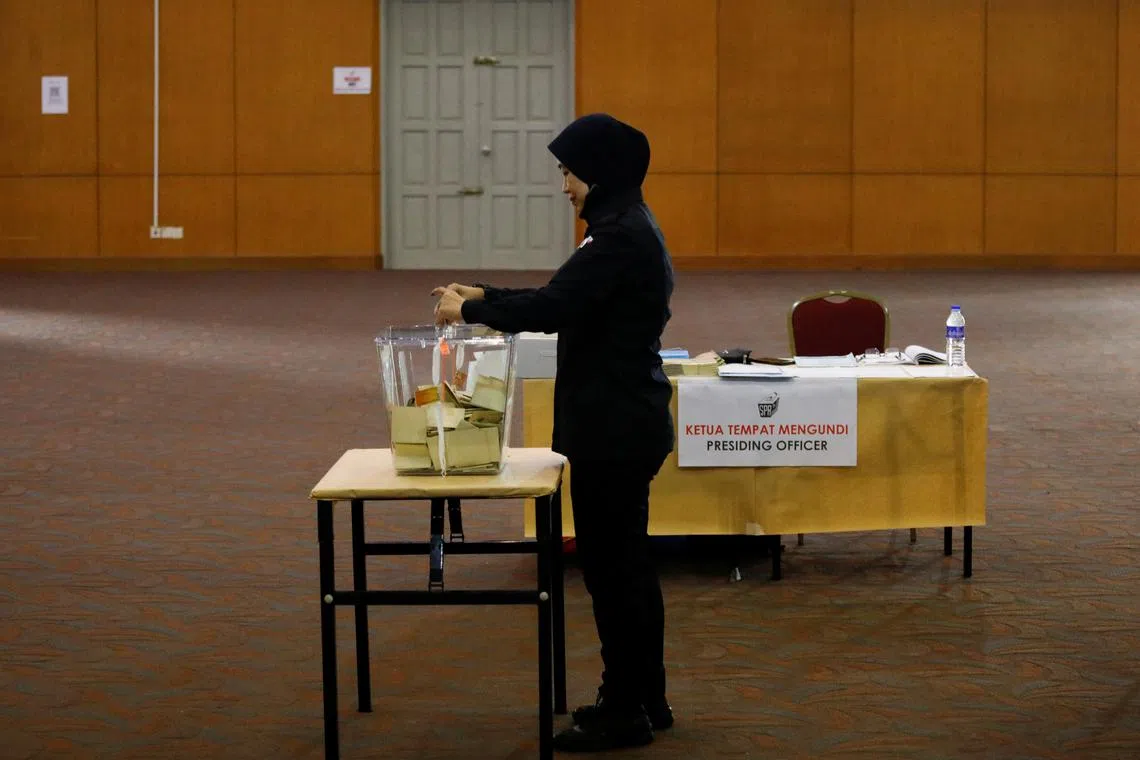
A policewoman casts her ballot during early voting for the Malaysian general election in Shah Alam, Selangor, on Nov 15, 2022.
PHOTO: REUTERS
The level of interest to vote is high
A higher electorate turnout, especially of outstation or overseas voters who are more likely to vote against the incumbent administration, is crucial for opposition candidates
Malaysian activists have come together
However, in some places like Ipoh in the state of Perak, election fever remained cool
7. It’s a numbers game
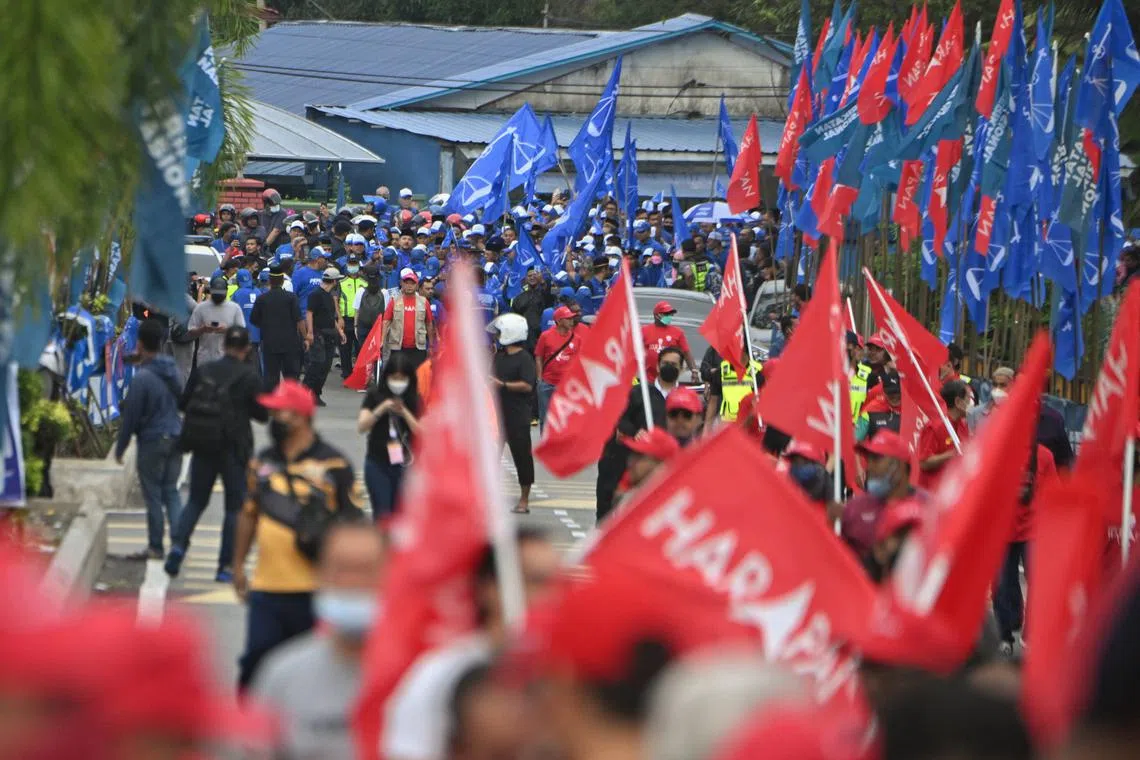
The tight races in many seats make the outcomes hard to tell at this point.
ST PHOTO: ARIFFIN JAMAR
Polling data has shown that BN’s rivals PH and PN’s support and popularity are on the rise calling into question
BN also appears to be dragged down by its chairman Zahid, whose unpopularity is proving to be a liability that a disjointed and poorly funded campaign has been unable to overcome.
It will not be a walk in the park for all, with the tight races in many seats making the outcomes
However, this has not stopped all three coalitions from claiming that they will have the numbers to form a simple majority
Still, whoever wins after Nov 19 will have to quickly tackle issues related to the economy and rising cost of living



